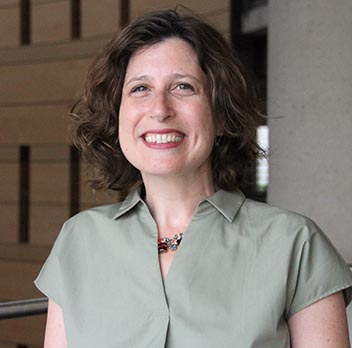
Two York professors have each received $100,000 from the Canadian Institutes of Health Research (CIHR) to fund projects set to improve pediatric palliative care and vaccine supply management.
Leeat Granek

Associate Professor Leeat Granek, of the Faculty of Health, received a $100,000 grant to research the accessibility of pediatric palliative care for Canadian children and families. Early use of pediatric palliative care has been shown to lead to positive results – for example, less pain or improved decision making around end-of-life planning – in disease or treatment trajectory. However, the challenge is that it remains underused in Canada.
Granek’s research will look to better understand why that is by exploring the barriers and facilitators to early integration by interviewing pediatric oncology clinicians, palliative healthcare personnel, psychologists and social workers, adolescent patients, and caregivers. The objective is to create policy recommendations aimed at improving access to care for all Canadian children and families who need it.
“The reason this is so important is because there are extremely high stakes for real people in the real world. These are sick children who are suffering. Their families are suffering. We can’t take away all their suffering, but, palliative care is this resource, that can help manage that - whether it’s physical, psychological, or emotional pain,” says Granek.
Fuminori Toyasaki

Associate Professor Fuminori Toyasaki, from the School of Administrative Studies in the Faculty of Liberal Arts & Professional Studies (LA&PS), has received $100,000 to further his research of vaccine supply management through the Centre for Research on Pandemic Preparedness and Health Emergencies, which operates within the CIHR.
During the COVID-19 crisis, the challenges around vaccine manufacturing and supplies were well publicized. However, those challenges are not just limited to the recent pandemic. Even recently, Canada reported shortages of shingles, hepatitis A and B, as well as rabies vaccines.
Low vaccine coverage – below the socially optimal level of vaccination to ensure widespread societal health – is a concern here and internationally. Titled "Designing public vaccine procurement contracts to secure a socially optimal level of vaccination," Toyasaki’s research will study how vaccine development can be hampered by regulatory approval and uncertainty around the timing of high demand, but especially the complex relationship between government agencies and private manufacturers of vaccines.
Their cross-purposes, in particular, can create obstacles towards achieving higher vaccine coverage: government buyers want to bargain down the procurement price to control their financial expenditure, which hurts the manufacturers' profit margin and results in insufficient capacity building. Toyasaki’s objective is to work towards exploring contract terms that can align the objectives of the two players to achieve the optimal level of vaccination – especially for any crisis that may still be ahead. “This current ongoing project is not only about this pandemic, but possible future pandemics,” says Toyasaki.
